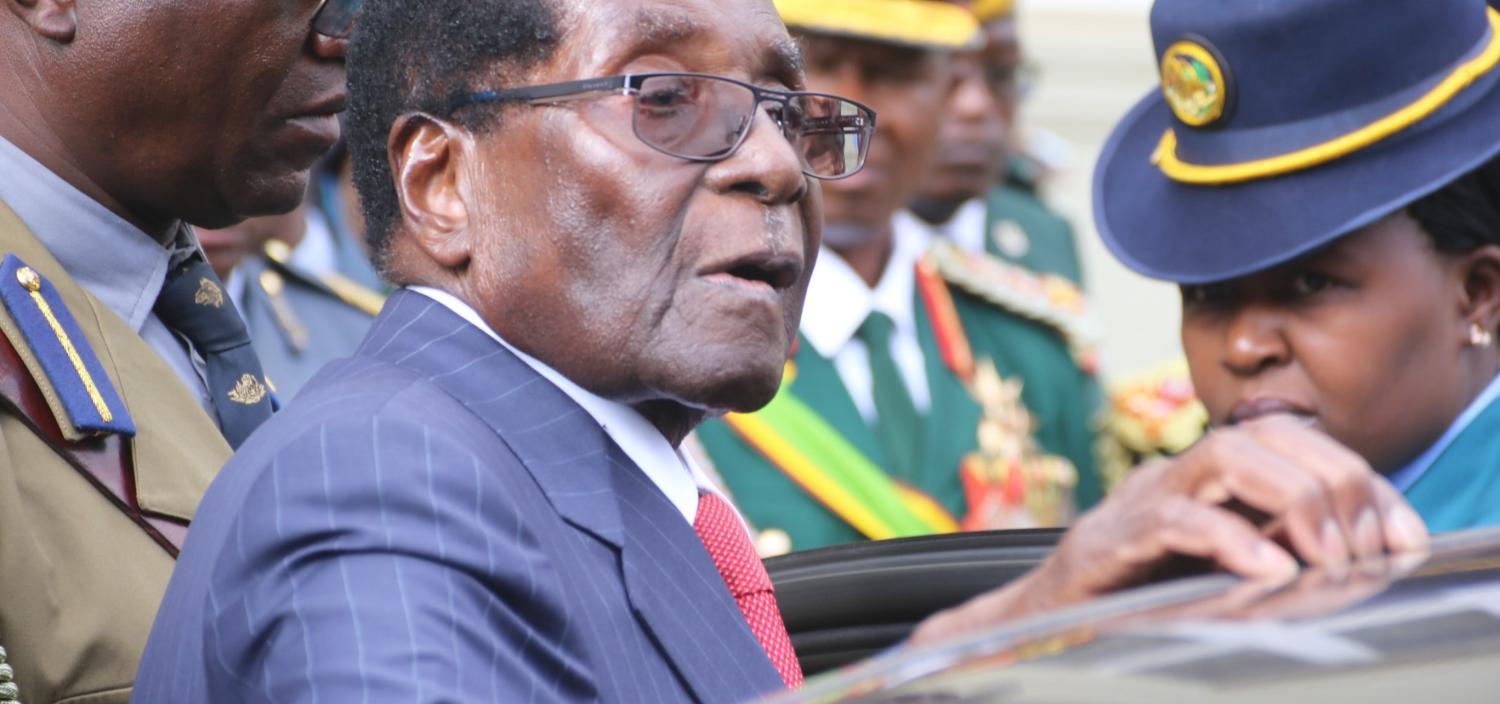Twice I interviewed Zimbabwe’s Morgan Tsvangirai, the man who has struggled to bring to a close the long and brutal rule of Robert Mugabe. The first time, in 2007, the bruises has only just faded from Tsvangirai’s face after a savage beating by Mugabe thugs. By the second time, five years later, Tsvangirai was the country’s prime minister in an uneasy power sharing government with Mugabe.
Why strike a deal with a tyrant, I asked. Tsvangirai had convincing won a majority in his own right in presidential elections but Mugabe stubbornly held on.
‘We had a stalemate,’ he said. ‘I had the support of the people, they had the guns.’
Now, another five years on, the guns appear to have finally turned. The reporting from Harare is sketchy and confused. A coup or not a coup? The army is on the streets after Mugabe last week sacked his deputy. Mugabe is one day reported to be under house arrest, the next is photographed shaking hands with the army chief. Tsvangirai is back in the country, but still a long way from in charge.
One point is clear: it is long past time for Mugabe to go. Having ruined Zimbabwe across 37 years of misrule, it was shameful that Japan and China still recently lavished him with state visits. Even Papua New Guinea last year extended a red carpet.
Hopefully for the people of Zimbabwe, this finally marks the end. But whatever happens in the coming days, Mugabe’s grim rule has international lessons. It is easily forgotten how much diplomatic energy Australia has expended over the years on Mugabe and Zimbabwe, until the problem simply fell into the too-hard basket.
Zimbabwe was once a priority and where things went wrong should be better understood, to avoid repeating similar mistakes with other stubborn problems (think Hun Sen in Cambodia or even the South China Sea).
In the 1960s, a rift in the conservative side of Australian politics centered on white rule in Rhodesia in the way same-sex marriage divides the Coalition today. Hardliners wanted Australia to support the white-minority regime of Ian Smith, while liberal voices argued for democratic change.
Malcolm Fraser helped settle those debates and later invested heavily in the process that saw an independent Zimbabwe. Nearly two decades later as the world finally woke up to Mugabe’s capricious rule amid land-seizures and spiraling inflation, John Howard enaged in the so-called ‘troika’ attempts to solve the crisis.
By the time I first met Tsvangirai, he was on a trip organised by the Foreign Affairs department. Australia still wanted true democracy in Zimbabwe, but after Mugabe withdrew from the Commonwealth, moral support for Tsvangirai’s opposition was really all Australia could offer.
But fast forward to the present, Australia could still make a bold move. Tsvangirai then supported the idea of giving Mugabe a form of guaranteed exile – no legal pursuit for Mugabe's clear crimes but to allow him to flee to a haven and ensure a peaceful transition of rule.
If Zimbabwe's latest crisis again falls into a stalemate, would Australia be willing to offer a home and amnesty to a 93-year-old despot in his final years, if a deal as ugly as this was to free a nation from a tyrant?

